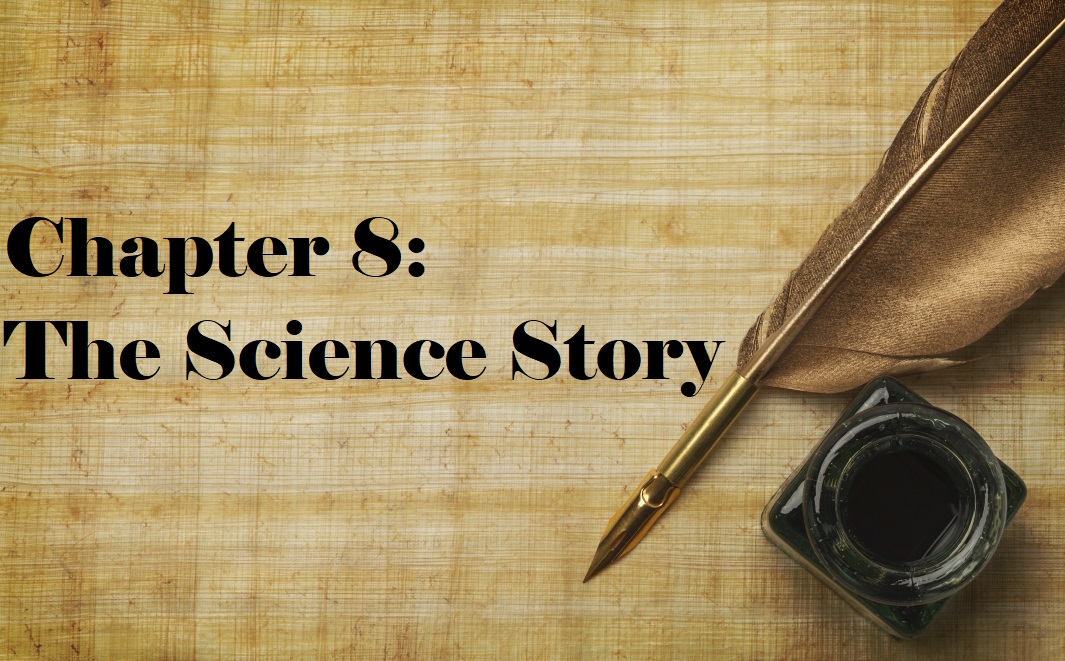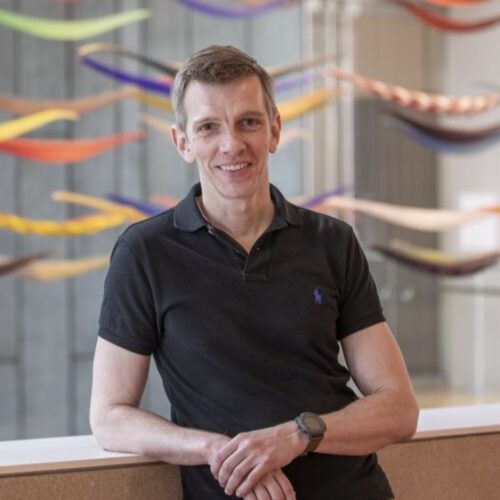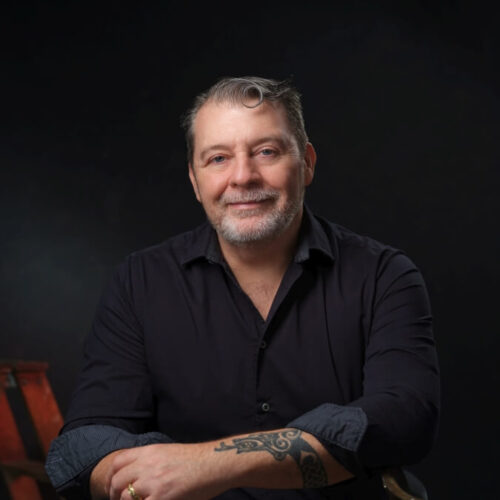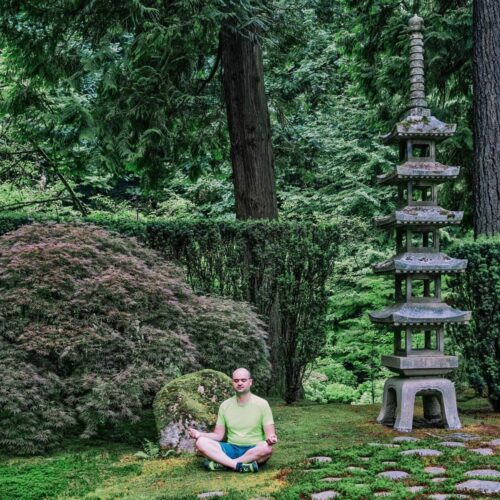Chapter 8: The Science Story
Socrates / Podcasts, ReWriting the Human Story
Posted on: June 20, 2021 / Last Modified: June 20, 2021
Podcast: Play in new window | Download | Embed
Subscribe: RSS

ReWriting the Human Story: How Our Story Determines Our Future
an alternative thought experiment by Nikola Danaylov
Chapter 8: The Science Story
The universe is made of stories, not atoms. Muriel Rukeyser
***
About 13.5 billion years ago, matter, energy, time and space came into being in what is known as the Big Bang. The story of these fundamental features of our universe is called physics.
About 300,000 years after their first appearance, matter and energy started to coalesce into complex structures, called atoms, which then combined into molecules. The story of atoms, molecules and their interactions is called chemistry.
About 3.8 billion years ago, on a planet called Earth, certain molecules combined to form particularly large and intricate structures called organisms. The story of organisms is called biology.
About 70,000 years ago, organisms belonging to the species Homo Sapiens started to form even more elaborate structures called cultures. The subsequent development of these human cultures is called history. [Yuval Harari, Sapiens p. 3]
After Benjamin Franklin disarmed the Gods by inventing the lightning rod, science has been the means by which humanity has first dethroned and then replaced God altogether. Today, breakthroughs in big data, AI, synthetic biology, genetic engineering, and neuroscience are all pushing us closer to Godhood. Many scientists are confident that defeating aging, creating mind uploads, AI, GMO humans, and radically new engineered organisms are simply a question of “when”, not “if”. This is why Stewart Brand noted that we are already Gods so we might as well start behaving as such. And so we have.
Humanity has never wielded more power for we live in the most scientifically advanced century in the history of our civilization. Paradoxically, it is also the most dangerous century not only for countless species going extinct but also for our own existence. But how can that be? Isn’t science good both for us and the world in general?
In this chapter, I will spell out and deconstruct the science story. I will then look at its implications and finish by arguing that science on its own has not and cannot ensure our progress or future survival. An initial bullet-point outline of my ambitious and tricky argument could look like:
1. Science is unable to set its agenda and priorities. Those are set up by the political, economic, religious, and social systems that science occurs in. As Leto Atreides II says in Frank Herbert’s Children of Dune: “Knowledge, you see, has no uses without purpose, but purpose is what builds enclosing walls.”
2. Science is equally unable to decide what to do with its discoveries because it does not deal with purposes and has no morality of its own. To inform its priorities and to apply its discoveries science needs a story. And this story is the result of an alliance with some religious, political, or economic ideology. Thus, it is story that determines what is to be funded and what is to be done with scientific discoveries. For instance, the space race – in general, and the Apollo program of putting a man on the Moon – in particular, are a great example of doing science for clear political reasons.
3. We cannot properly understand the scientific revolution by studying the greatest scientists. To understand it better we must understand the political, economic, and religious agendas that shaped and gave birth to those. A key insight here is that, while individual scientists may be interested in “the truth” about how our Universe works, the real goal of modern science is not truth but power. [Hence the phrase, usually attributed to Francis Bacon, “scientia est potentia” – i.e., “knowledge is power.”] Just one example is Leonardo da Vinci who wrote everything in a mirrored code because he was not interested in scientific progress. Leonardo’s goals were a lot more prosaic: to make himself and his employer, the Prince, more powerful and more famous.
Furthermore, as a species, we humans prefer power to truth. That is why we spend far more time and effort trying to control the world than trying to understand it. Even on those rare occasions when we do try to understand it we do that in the hope our understanding will make it easier to control. So, clearly, we don’t seek knowledge. We seek power. Unfortunately, the more power we possess the greater the strength of character we need in order to use our power wisely, in a non-destructive manner. Alas, looking at the damage we’ve caused to the climate and biosphere, our growth in wisdom is evidently lagging far behind our growth in power. In the long run, that kind of ever-expanding unbalance is likely to turn out not merely destructive but even suicidal. Some say it already has.
4. The idea of progress is a relatively recent invention and, in fact, the concept predates actual scientific progress by 200 years. It was invented by Francis Bacon in the late 1500s and was conceived in very narrow Christian terms. Consequently, there are many issues stemming from the story of progress. But, what’s important is that today both science and capitalism are inseparable from progress – the idea that everything is always getting better. And that the next generation will necessarily be better off than the previous one. The idea that the pie will always grow bigger and things will always get better, however, goes against everything we know from science – be it physics, biology, chemistry, etc.
For example, how will a pack of wolves behave if they believe that the supply of sheep is always going to grow, no matter what the wolves do? And physics says that there is a finite amount of energy in any system, so it is impossible for things to keep growing infinitely. As Frank Herbert says in Dune: “The concept of progress acts as a protective mechanism to shield us from the terrors of the future.“
5. Today science is replacing religion by promising eternal life and technological salvation. Our leading scientific project – the Gilgamesh project, is aimed at defeating death. Concepts such as technological singularity, transhumanism, and dataism – the belief in big data, are on the path of becoming religions.
6. Just like oracles, prophets and priests spoke for God and religion, scientists speak for science. Because science, or the facts, can’t speak for itself. So, someone always interprets and speaks for them. That someone has a reason “why” and therefore a purpose that originates not inside but outside of science, in a story that they have embraced and rarely disclose. That is why all great scientists are also great storytellers. Just think of Albert Einstein, Carl Sagan, Steven Hawking, Neil DeGrasse Tyson, etc.
7. Neither science nor reason can determine our moral values. They could, at best, inform them. And so they should. But there isn’t such a thing as an argument that is grounded exclusively and entirely in science or reason. Because science and reason can tell us how to act in accordance with our values. But they can’t tell us why we should act in the first place, what is the source of our values, and if or when we should and shouldn’t use science and reason. In other words, you can’t get an ought from an is.
That is why Pulitzer prize winner Toni Morrison noted: “Facts can exist without human intelligence, but truth cannot.”
Albert Einstein himself once said that there are no facts without theory. And what’s a theory you may ask?
A theory is simply a story.
So whether we call it truth or theory we need a story to put those facts into a context, to be able to see them in perspective, to rank and organize them, to make sense of and assign value to them. Science without story has no agenda, no priorities, no meaning, no direction, no value, and no use.








